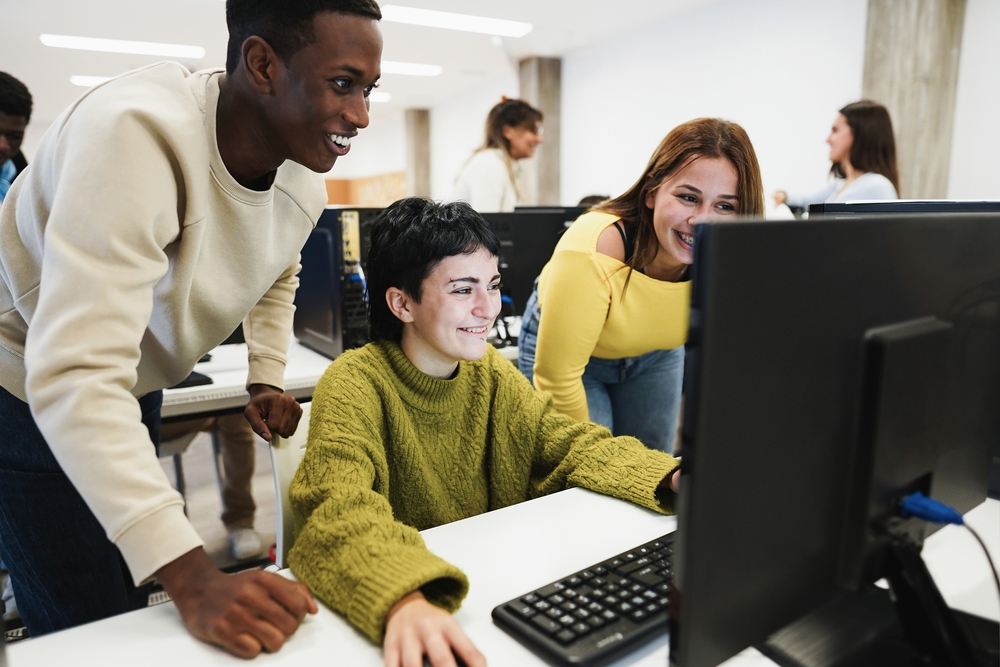Digital Collaboration expands International Education Opportunities
12 June 2025
Digitale samenwerking vergroot internationale kansen in het hoger onderwijs en maakt studie-ervaring toegankelijker voor meer studenten, met speciale focus op kansengelijkheid en nieuwe leeropbrengsten.

Students are increasingly gaining international experience through digital collaboration. This is revealed in the research report Grenzeloos Studeren (Studying Without Borders) by Nuffic, conducted in collaboration with the Learning Technology & Analytics research group (part of the Centre of Expertise Global and Inclusive Learning).
The study shows that digital international collaboration (DIS), where students work online with peers from other countries, is more accessible to many students than studying abroad. Students whose parents did not complete higher professional education (HBO) or university education (WO) especially make more use of this digital form. DIS thus contributes to greater equal opportunities within higher education.
Some key figures
In total, more than one in five graduates from HBO and WO had an international experience. About half of them participated in a program abroad, while the other half engaged in digital collaboration. Participation in international experiences is higher within HBO than WO.
Moreover, DIS offers different learning outcomes compared to physical mobility. Whereas studying abroad mainly contributes to independence and personal development, participants in DIS more often report improved language skills and digital collaboration.
Contribution of The Hague University of Applied Sciences
Together with the Vrije Universiteit and Nuffic, The Hague University of Applied Sciences (THUAS) is involved in this research. The Learning Technology & Analytics research group at THUAS studies how technology and educational data can contribute to accessible and inclusive education.
For this research, the lectorate collaborated with colleagues at Nuffic to analyze the CBS dataset underlying the study and contributed to the final report. Additionally, professor Theo Bakker is working on a follow-up. He investigates whether differences in equal opportunities affect the international study experience. From the Vrije Universiteit, he is conducting in-depth research into the international study experience of students with autism.
Want to know more?
More information can be found on the Studying without Borders project page on THUAS’ website. The full report is available in Dutch via Nuffic’s website.